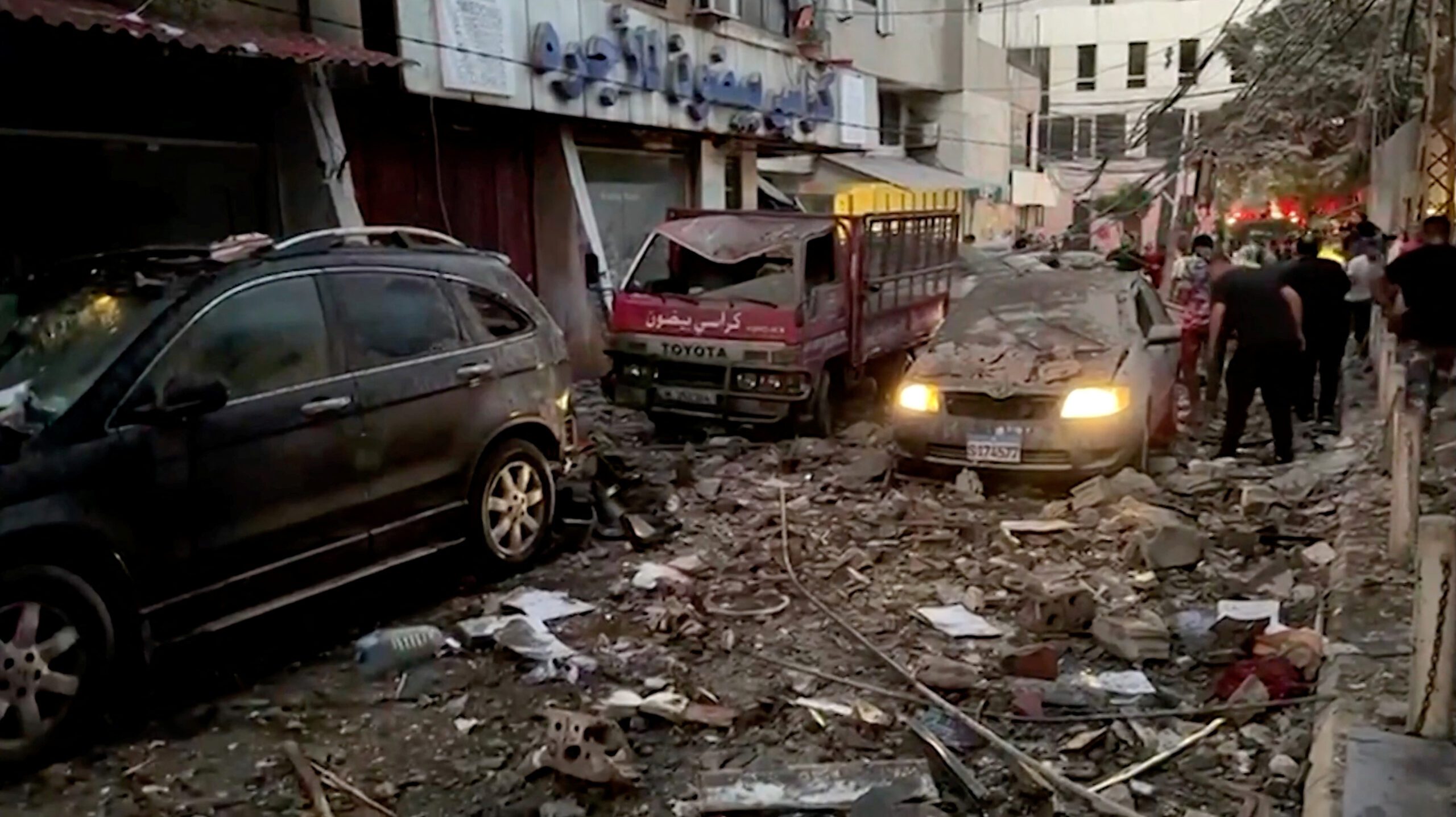On Tuesday night, an Israeli raid targeted a building in the Haret Hreik municipality in Beirut’s southern suburbs. The strike killed four civilians, including two children, and injured at least 74 individuals, many of whom are in critical condition as the scope of the damage was immense.
The number of casualties could potentially rise in the coming hours of Wednesday as the strike produced a significant amount of rubble, under which many people remain missing. The attack, consisting of three drone-launched missiles, targeted a four-story residential building.
The Israeli army claimed that the strike successfully killed Hezbollah commander Fouad Shukr. In a statement, Hezbollah confirmed that Shukr was in the building targeted, but said that his fate is yet unknown as rescue efforts continue.
Shukr was one of the key military advisors to Hezbollah Secretary General Hassan Nasrallah, with the US Treasury designating him as a terrorist in 2019 and offering a five million dollar reward for information on his whereabouts, as it is also believed that he had a notable role to play in the 1983 bombing of the US Marine Corps Barracks in Beirut.
Drone Strike Assassinates Ismail Haniyeh in Tehran
A few hours after the strike in Haret Hreik, Hamas announced in a statement on Wednesday morning that the head of its political bureau, Ismail Haniyeh, and one of his companions, were martyred in Tehran after attending the inauguration ceremony of the new Iranian president Masoud Pezeshkian.
The assassination of Haniyeh makes it the second time that a Hamas official has been targeted outside Palestine. On January 2, a drone strike targeted the deputy chairman of Hamas’s political bureau, Saleh al-Arouri, in Beirut’s suburbs.
Haniyeh has been the head of Hamas’s political bureau since 2017, after heading Hamas in Gaza between 2014 and 2017 and being elected Prime Minister of Palestine in 2006.
Many across the Arab region and the world praised Haniyeh for his career in resisting Israeli occupation and mourned the leader on their social media platforms.
Two Diverging Scenarios
Shortly after the assassination of Haniyeh, United States Secretary of Defense, Lloyd Austin, asserted that the US will defend Israel if it is attacked.
However, some political analysis suggests that these targeted strikes might signal the nearing of a ceasefire agreement, whereby Israeli authorities and the Netanyahu government announce that they achieved some military objectives, after their goal of “eradicating Hamas” has notably failed.
Lebanon’s population has been expecting a strike for the last few days, after the explosion in Majdal Shams in the occupied Golan area.
International actors have continued pressuring Israel to put an end to its genocidal campaign in Gaza. While Israeli negotiators have continued undermining ceasefire agreements, it remains unclear whether a full-blow escalation would be beneficial. As such, analysis suggests that a ceasefire agreement might be coming close after Shukr and Haniyeh’s assassinations.


